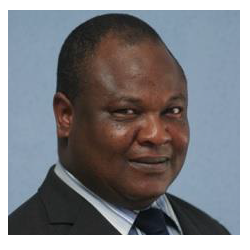 |
Institutional Framework for Monetary Policy in Nigeria |
The institutional set up of the monetary policy process affects the efficacy of monetary policy. In Nigeria, the Monetary Policy Department of the CBN articulates the monetary policy framework and produce draft monetary programme which is considered by a Monetary Policy Committee(MPC) . The MPC also considers draft reports on the economy and assessment made by the staff of the Bank on which monetary policy deliberations and subsequent decisions are based.
The MPC deliberates on the monetary policy instruments which are subsequently implemented by the operational departments. The MPC meets every other month and has a calendar of meetings. It is the highest authority on monetary policy issues at the CBN. In line with the new CBN Act, the Committee must sit at least four (4) times in a year. Because the CBN has instrument independence, its monetary policy opinions are not vetted by any higher authority. The Committee Comprises the Governor and Four (4) of his deputies, two (2) external Board members, the Permanent Secretary, Ministry of Finance and a secretary, usually the Head of Monetary policy Department. Following the enactment of the new CBN law, the membership of the Committee is expected to be expanded to include some appointees of the President and the Governor of the CBN.
At the CBN there are other supporting institutional arrangements. These include the Monetary Policy Technical Committee (MPTC) and the Monetary Policy Implementation Committee (MPIC), Fiscal Liquidity and Assessment Committee (FLAC) and Liquidity Forecasting Committee (LFC). These committees perform different but complementary roles in the formulation and implementation of monetary policy at the CBN. The MPTC meets monthly to review economic and financial developments, on the basis of which it advices the MPC on the appropriate course of action. The Committee which comprises all the policy departments and some operational departments is anchored by the Monetary policy Department.
The MPIC meets every other day to review liquidity situation and take actions aimed at ensuring that the Bank’s operational target, base money remains at the prescribed level. The Committee is Chaired by the Deputy Governor, Economic Policy. The FLAC is an inter-agency committee comprising representatives of the Debt Management Office, The Budget Office of the Ministry of Finance and the Office of the Accountant General, and CBN represented by staff in MPD. The Committee is hosted on behalf of the CBN by the MPD.
Enjoy this article? Feel free to share your comment, idea or opinion in the comment section
| Tags: | Monetary Policy Fiscal Liquidity Committee. |
Related Articles

|
Nigeria Can Strengthen Economy via Wheat Trade LiberalizationReport Highlights: Nigeria remains a huge export market for wheat with export value of U.S. wheat averaging $1 billion, about 85 percent share of the wheat market. The high demand is mostly pressured by increasing consumption of wheat flour - based products and insufficient domesti [Read more]
|
Posted: 13 years ago |

|
What is the Balance Sheet Channel of Monetary Policy Transmission?The purpose of monetary policy is to influence the tempo of economic activities in the country. The manner in which this policy affects real economic aggregates such as inflation, output, interest and exchange rates and employment is referred to as transmission mechanism. In theory, monetary policy [Read more]
|
Posted: 14 years ago |

|
Confronting Inter-Regional Disparities in NigeriaDisparities in endowments of agricultural, mineral and commercial wealth across Nigeria’s six geopolitical zones determine the rates at which the different regions can grow. Economic activities and growth are concentrated in four regions, while the remaining two regions are largely excluded fr [Read more]
|
Posted: 13 years ago |


